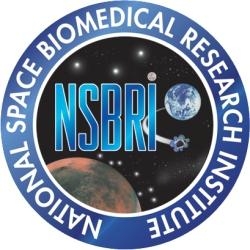Thu, Jun 21, 2012
Each Scientist Will Focus On A Specific Area Of Human Space Flight
The National Space Biomedical Research Institute (NSBRI) has enlisted seven of the nation's top scientists to serve as team leaders in its efforts to protect astronaut health during long-duration spaceflight. Each of the scientists will lead one of NSBRI's seven discipline area research teams focused on specific challenges faced by humans in space.

"NSBRI's position at the forefront of space biomedical research will be enhanced with these outstanding scientists serving as team leaders," said Dr. Jeffrey P. Sutton, NSBRI president and CEO. "Their expertise and knowledge will be beneficial to the Institute, NASA and human spaceflight in general. They will play an instrumental role in our efforts to overcome health challenges facing humans while in space and to improve health care on Earth."
The team leaders are responsible for reporting on their teams' research projects and working closely with the NSBRI Science Office and NASA to ensure alignment with operational needs. The team leaders' term is for three years and they must also have a currently funded NSBRI research project.
The NSBRI teams address space health concerns such as bone loss and muscle weakening, balance and orientation problems, neurobehavioral and psychosocial problems, radiation exposure, remote medical care and research capabilities, and habitability and performance issues during spaceflight.
The team leaders and their institutions are:
Cardiovascular Alterations Team
- Dr. Benjamin D. Levine, University of Texas Southwestern Medical Center at Dallas Human Factors and Performance Team
- Dr. Elizabeth B. Klerman, Harvard Medical School-Brigham and Women's Hospital Musculoskeletal Alterations Team
- Dr. Lori Ploutz-Snyder, Universities Space Research Association Neurobehavioral and Psychosocial Factors Team
- Dr. David F. Dinges, Perelman School of Medicine at the University of Pennsylvania Radiation Effects Team
- Dr. Ann R. Kennedy, Perelman School of Medicine at the University of Pennsylvania Sensorimotor Adaptation Team
- Dr. Charles M. Oman, Massachusetts Institute of Technology Smart Medical Systems and Technology Team
- Dr. Gary E. Strangman, Harvard Medical School-Massachusetts General Hospital
NSBRI, funded by NASA, is a consortium of institutions studying the health risks related to long-duration spaceflight and developing the medical technologies needed for long missions. NSBRI's science, technology and education projects take place at more than 60 institutions across the United States.
More News
From 2023 (YouTube Version): Legacy of a Titan Robert (Bob) Anderson Hoover was a fighter pilot, test pilot, flight instructor, and air show superstar. More so, Bob Hoover was an i>[...]
Get The Latest in Aviation News NOW on Instagram Are you on Instagram yet? It's been around for a few years, quietly picking up traction mostly thanks to everybody's new obsession >[...]
Aero Linx: B-52H Stratofortress The B-52H Stratofortress is a long-range, heavy bomber that can perform a variety of missions. The bomber is capable of flying at high subsonic spee>[...]
Altimeter Setting The barometric pressure reading used to adjust a pressure altimeter for variations in existing atmospheric pressure or to the standard altimeter setting (29.92).>[...]
"Knowing that we play an active part in bettering people's lives is extremely rewarding. My team and I are very thankful for the opportunity to be here and to help in any way we ca>[...]
 Classic Aero-TV: Remembering Bob Hoover
Classic Aero-TV: Remembering Bob Hoover ANN FAQ: Follow Us On Instagram!
ANN FAQ: Follow Us On Instagram! ANN's Daily Aero-Linx (05.15.24)
ANN's Daily Aero-Linx (05.15.24) ANN's Daily Aero-Term (05.15.24):Altimeter Setting
ANN's Daily Aero-Term (05.15.24):Altimeter Setting Aero-News: Quote of the Day (05.16.24)
Aero-News: Quote of the Day (05.16.24)



